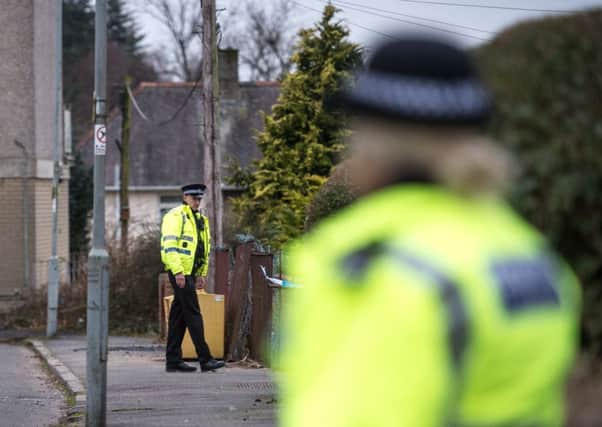Police struggle with repeat complainers as 11 people cost force thousands


The Scottish Police Authority (SPA) said that since the creation of Police Scotland in 2013, the individuals had generated 27 cases comprising a total of 217 allegations.
It is estimated each case takes around 160 working days to be handled, with more than £850,000 spent on all complaint handling in the past five-and-a-half years.
Advertisement
Hide AdAdvertisement
Hide AdFormer Lord Advocate Dame Elish Angiolini is carrying out a review of police complaints amid frustration the system is not working properly for complainants.
But analysis carried out by the SPA found persistent complainers were taking up a “disproportionate” amount of time.
And the authority found the number of complaints increases when senior officers make high-profile appearances in front of Scottish Parliament committees.
The in-depth review of complaints is likely to form part of the SPA’s response to Dame Elish’s review, which is due to report next year. A report prepared for the SPA board states: “Persistent complainers may make a high number of complaint allegations, generate significant amounts of correspondence, take up a disproportionate amount of complaint handling resource or make repeat complaints regarding issues which have previously been concluded.
“Over the five-and-a-half year period, the SPA has dealt with 11 separate complainers who between them have generated 27 cases, comprising 217 allegations with an average time of 160 working days taken by the SPA to close their complaints.”
The report said that in some cases, the complainers had repeated complaints up to six times.
It added: “We also have a number of complainers who generate numerous individual complaint allegations, with one case generating 111 allegations. These complainers generate a significant amount of correspondence and tend to escalate complaints through other internal and external channels beyond the SPA.”
While Police Scotland handles initial complaints relating to officers, the SPA is responsible for complaints against senior officers above the rank of assistant chief constable.
Advertisement
Hide AdAdvertisement
Hide AdThere was heavy criticism of police complaints procedures earlier this year after the SPA referred a number of complaints about then Chief Constable Phil Gormley to the Police Investigations and Review Commissioner (Pirc).
Mr Gormley, who denied any wrongdoing, was the subject of five separate investigations following bullying allegations.
However, the investigations ended following his resignation from the force and he has since taken up a new role as a inspector of constabulary for England and Wales.
Calum Steele, general secretary of the Scottish Police Federation (SPF), said there was often frustration among both the public and police officers themselves about the way complaints were handled.
He said: “If someone has a perception that they were utterly wronged, even if all the available evidence suggests otherwise, you’re not going to change their mind on that. But equally many police officers have a sense of injustice and frustration at long drawn-out investigations.”
He added: “The environment created when it comes to police complaints is that vexatious complainers are often well known to the police, but because of the ridiculous expectation that every single complaint has to be treated the same, the service has little option but to follow the same process for everybody.” Yesterday it emerged investigations into police corruption have risen by a quarter in the past year amid concerns organised crime gangs are attempting to entrap officers using their personal social media accounts.
It came as Dame Elish called for members of the public to get in touch with her team about their experiences of complaining about the police.
Dame Elish said: “It is in all our interests – public, police and staff – that we have trust and confidence in the system; know that it is fair, transparent, accountable and proportionate; and be sure that it will always protect the rights of all those involved.”